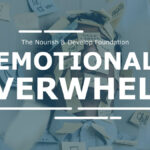Bullying affects children and adults alike.
It can take place in all kinds of environments including schools, the workplace, within social groups and relationships, as well as online. Some might think of bullying as a natural part of life and growing up, but it is wrong and negatively impacts our mental health, even having the potential to cause long-term psychological damage. In order for bullying to stop, everyone needs to be involved from perpetrators to bystanders. This week we would like to refresh your understanding of bullying and offer tips on how you can prevent it.
“Bullying is a conscious, willful, deliberate, repeated and hostile activity marked by an imbalance of power, intent to harm and/or threat of aggression.”
Did you know?
40% of Canadian workers experience bullying on a weekly basis.
4 MAIN TYPES OF BULLYING
- punching
- shoving
- hitting
- biting
- destroying or stealing someone’s belongings, etc.
-
name calling
-
making threats
-
teasing in a mean way, etc.
-
excluding others
-
humiliating others
-
spreading rumours, etc.
- using the internet, text messaging, social media etc. to cause harm or intimidate someone.
Did you know?
Enduring or executing bullying increases the risk of suicide in youth.
What bullying can look like in adulthood:
Your friend group always singling you out by not inviting you to get-togethers and excluding you from any group chats, inside jokes, and purposely choosing activities you don’t like.
- Low self-esteem
- Loneliness and isolation
- Poor performance at school and work
- Trouble sleeping and nightmares
- Withdrawal from activities like school, work, and sports
- Trauma
- Lack of social support
- Poor general health
- Development of mental illness
- Reduced cognitive functioning
Did you know?
85% of bullying happens in front of other people.
IF YOU ARE…
You might be bullying others without realizing it! Luckily, it is never too late to stop. Taking on the tole of a bully has long-term consequences as well including increased risk of substance use, criminality, and becoming domestic abusers, so engage in some self-reflection to make meaningful changes.
- Think before you act: take a moment to ask yourself how you would feel if you were on the receiving end of your behaviour. It is not cool and you are hurting someone. Be respectful in your communications and apologize when you are wrong.
- Work through your problems: perhaps you struggle with self-confidence or have been a victim of bullying yourself. While this may offer an explanation for your behaviour, it does not excuse it. Your behaviour is your responsibility, so consider getting professional support to develop better coping strategies and regulate your emotions instead of taking them out on people.
- Focus on yourself: rather than feeling better about yourself by putting down others, focus on being your best self and direct your energy inward. Boosting your own self-confidence can help with feelings of jealously and insecurity. When you respect yourself, you will have an easier time respecting others.
Being bullied is not your fault and though it is not fair for you to be subjected to such behaviours, there are some steps you can take to manage the situation and become less appealing to your perpetrator.
- Stay safe: safety is the first and foremost priority. When you are being taunted, walk away and don’t react. Fighting back can make the problem worse. If it is online, block the person who is harassing you. Remind yourself that you are a good person and whatever they say to you is not factual.
- Fake it: you don’t have to change who you are or how you feel, but not letting your true emotions show in the moment and acting like you are unbothered instantly diffuses the power the person bullying has over you. They get pleasure in seeing how their actions affected you so don’t give them the satisfaction.
- Confide: please don’t suffer in silence. Talk to a trusted friend, counsellor, coach, family member, etc. to vent or to ask for help. When you internalize your feelings, it can have adverse impacts on your mental health and damage your self-esteem, so let others be there for you.
- Buddy up: you are much less likely to be targeted when you have support. When you can, have someone with you, as bullies prefer to choose someone who is alone since they have a better chance of getting away with their actions. This is especially important in vulnerable environments such as a wooded trail to stay safe.
- Keep a record: in case the bullying continues or escalates and you need to make a report to a third party like human resources or to take legal action, documentation can be helpful. Keep notes of incidences including dates, locations, and any witnesses. If online, save messages, videos, and take screenshots. Having evidence allows for a consequence to be issued.
It can be uncomfortable to witness an act of bullying and if you want to help you might not know how or fear becoming a target yourself. Ignoring it altogether causes the most harm so it is helpful to explore options of how you can intervene.
- Speak out: call out the bully’s behaviour by telling them to stop, to leave the person alone, or question their actions. This is a bold approach, but it can embarrass a bully and cause them to shut down if they were looking for attention or validation.
- Shift focus: throw off the instigator through using humour or changing the subject to distract them from the encounter and showing you are not threatened by them. They will likely lose interest and move on to something else.
- Offer support: walking away with or befriending the affected person can make them feel comforted and supported. There is strength in numbers and the person you helped will be more willing to have your back in the future.
- Tell someone: if you don’t have the skills or resources to effectively manage the situation, let someone know who has the power to make a difference. Report what you witnessed so that person can be on the lookout for similar behaviour in the future and can intervene appropriately.
- Reach out: letting someone know that you thought they were mistreated and that you care about them can make them feel less alone. Even if done privately or after the fact, they will feel valued knowing that someone is on their side.
THE BULLYING YOU EXPERIENCE DOES NOT DEFINE WHO YOU ARE.
https://www.verywellfamily.com/10-ways-for-adults-to-heal-from-childhood-bullying-460794
Need to speak to someone?
Call, text, or chat the 24/7 supports below to get connected with a trusted responder:
Bullying Canada
https://www.bullyingcanada.ca/get-help/
Distress Centre Durham
https://distresscentredurham.com/
Kids Help Phone
Sources:
https://www.bullyingcanada.ca/get-help/
https://www.mentalhealthcommission.ca/sites/default/files/2017-11/CSP_Fact_Sheets_bullying_eng.pdf
https://discoverymood.com/blog/no-name-calling-week-adult-bullying/



